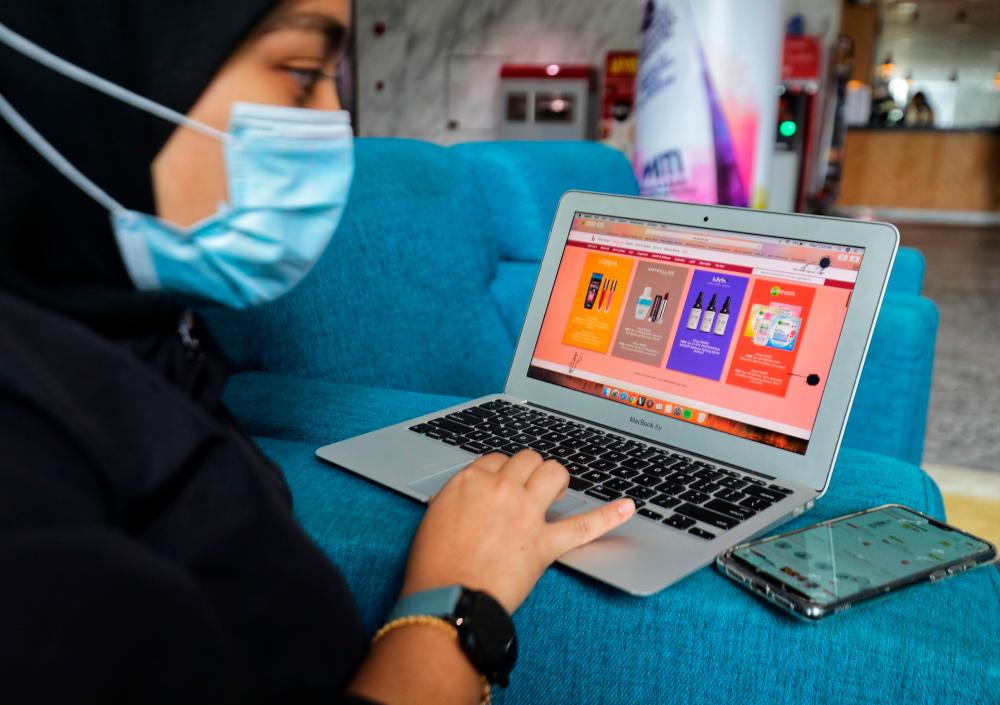PETALING JAYA: While virtual internships offer benefits such as flexible schedules, an absence of geographical limits, savings on commuting costs, and allow students to gain experience without having to disrupt studies, they pose security risks for businesses, said an academic.
Universiti Teknologi Mara human resources senior lecturer Dr Muhammad Aiman Arifin said internship durations typically range from three to six months, during which time it is challenging to ensure interns remain loyal to business policies.
“In remote working environments, where virtual interns operate outside the traditional office setting, such vulnerabilities for businesses can be amplified.”
Muhammad Aiman said the heightened risk arises from the lack of direct oversight and control over the intern’s work environment, potentially less secure network connections, and the use of personal devices that may not adhere to the same security standards as company-owned equipment.
“These vulnerabilities can pave the way for a range of cybersecurity threats, including data breaches where sensitive company information is compromised.
“The unauthorised access to systems or data by individuals without proper permissions, and other malicious activities that exploit weaknesses in the remote working setup also pose a danger to security breaches.”
He said while some students and employers embrace the flexibility and accessibility of virtual internships, one should maintain cautious scepticism regarding its effectiveness in cultivating essential skills.
A third-year animation student from a public university, Thivyhaalakshmi Ganeson, 23, said virtual internships can be convenient for some individuals, even though she was not enthusiastic about it.
“Virtual internships do not provide hands-on experience, especially in animation where learning specific software and techniques are essential. I am concerned about not receiving adequate guidance without being physically present on-site.”
She said without spontaneous conversations or informal interactions at the university, she missed out on valuable networking opportunities and mentorship that could shape her career trajectory.
“Virtual internships for aspiring animators may provide the opportunity to collaborate with individuals from various countries. However, the lack of hands-on experience and direct interaction with professionals hinder networking opportunities.
“I prefer to take on traditional internships to build a strong network and learn through hands-on work,” she said.
Human resource manager and talent recruiter at a software company, Kavinthiran Shanmugam, supported a continuation of traditional internships over virtual ones.
“In traditional internships, face-to-face interactions provide a level of accountability that is often lacking in virtual settings. When interns are physically present in an office, it’s easier to gauge their commitment and work ethics.
“It is also easier to observe their attendance, punctuality, and overall engagement, which helps to reduce the risk of hiring interns who may be unreliable or prone to absenteeism,” he said.
Kavinthiran said virtual internships present challenges in monitoring and ensuring the consistent participation of interns.
“Without the ability to physically observe interns, it is more difficult to detect absenteeism or lack of productivity. Apart from this, virtual internships lack the hands-on learning that traditional internships provide.”
Kavinthiran said being physically present in an office exposes interns to the day-to-day operations of a business, fosters networking opportunities, and allows for mentorship under seasoned professionals – matters that are difficult to replicate virtually.
Once the risks are acknowledged, Kavinthiran said businesses should act pre-emptively.
He suggested a proactive implementation of policies governing remote work, provision of training on security practices to virtual interns, and leveraging technology to enhance security in remote settings.









